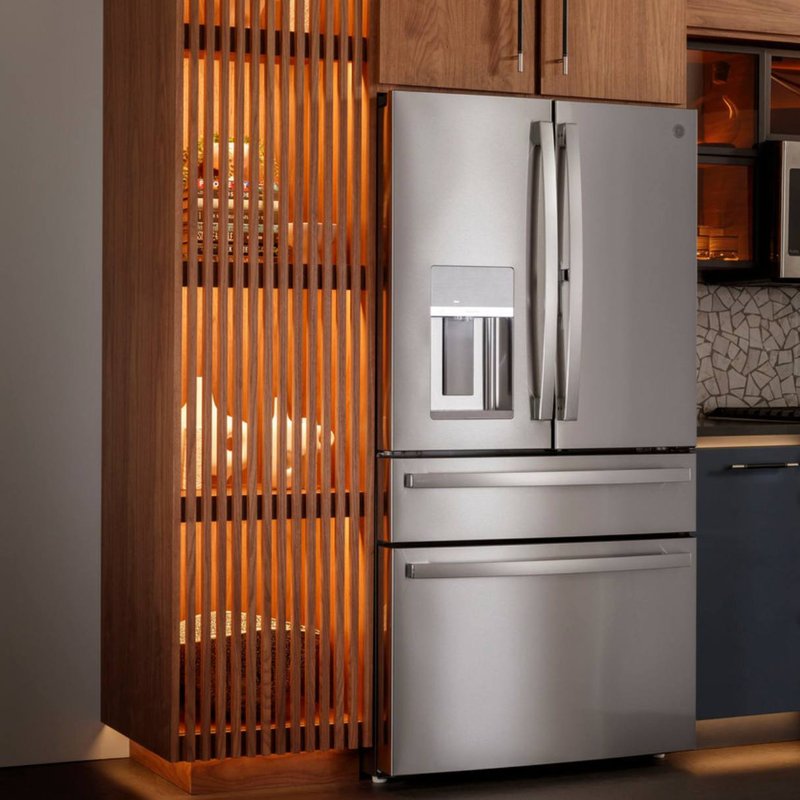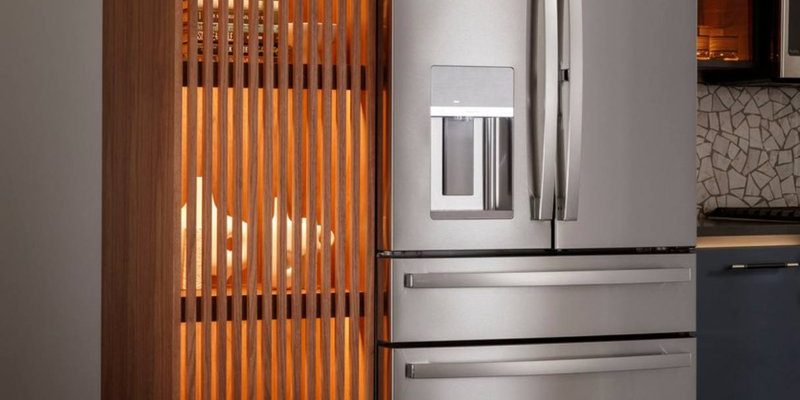
Let’s break it down. An “F1” error on your GE refrigerator is an alert that there’s something amiss with your fridge’s system. Think of your refrigerator as a complex orchestra, each part playing its own vital role to keep your food fresh and ready. When one part hits a wrong note—like in this case—it throws the symphony out of balance. This error is essentially a signal that something needs fixing, and it’s calling for a bit of attention. Here, the ultimate question arises: when exactly should you throw in the towel and call a technician?
Understanding the F1 Error Code
The first step in deciding when to call a technician for your GE refrigerator’s F1 error code is understanding what it represents. In simple terms, the F1 error is an indicator that there may be a problem with the refrigerator’s main control board. This board is kind of like the brain of your refrigerator. It sends and receives signals to ensure everything runs smoothly.
But why is the main control board acting up? There could be several reasons behind this. Sometimes, it’s due to a glitch or hiccup in the system—like your fridge caught a cold and needs a reset. Other times, it might suggest a more severe issue, such as a hardware malfunction or a fault in the wiring. Knowing the reason helps you decide the urgency of the situation.
Here’s the deal: If your refrigerator is still cool and functioning overall, you might be dealing with a minor issue, like a temporary software glitch. In this case, unplugging the fridge for a few minutes and plugging it back in can reset the system and clear the code. But if your refrigerator isn’t cooling properly, it’s time to ring up a professional. This could indicate a more serious problem that only a trained technician can resolve.
When Is It Time to Call a Technician?
You might be wondering, “Okay, so when should I actually call someone?” Great question! The decision to call a technician should be based on a few key observations of your fridge’s behavior. Let’s explore those.
First, observe the cooling. If your fridge feels warmer than usual despite the F1 error showing, it’s similar to your body running a fever—it’s a sign that something serious is off. In this scenario, the F1 code is a cry for help. Continuing to use the fridge without addressing the issue could spoil your food and lead to further damage, so definitely call a technician.
Next, consider the sound your refrigerator is making. We all recognize the calming hum of a fridge, but if the noise has turned into clanking, buzzing, or hissing, it’s like your refrigerator is trying to communicate its problems audibly. Strange sounds paired with an error code are a strong indicator that professional help is needed.
Lastly, if you’ve tried the unplugging trick and the error code still persists, it’s time to call it quits on the DIY approach. Persisting issues could mean there’s a deeper problem at play, and ignoring it could escalate things.
What Could Happen If You Ignore the F1 Error
Ignoring the F1 error code on your GE refrigerator might seem tempting, especially if everything seems fine on the surface. However, this can have consequences. Imagine ignoring a growing pothole on the road—it might be fine for a while, but eventually, you’ll end up with a flat tire. Similarly, not addressing an F1 error could lead to bigger, costlier problems.
For instance, a malfunctioning main control board could lead to inconsistent temperatures. Your milk might end up warmer than it should be, jeopardizing food safety. Worse, neglecting the error could cause the fridge to stop working altogether, leading to spoiled groceries and a scramble to find a repair service.
Strong advice: don’t let small issues snowball into significant problems by ignoring them. Proactively seeking a technician’s input can save you time and money in the long run, not to mention the peace of mind from knowing your fridge is in good hands.
Preventative Tips for Avoiding Future Errors
Alright, let’s chat about prevention. Like with health, preventing problems before they arise is always better than rushing to fix them. With your GE refrigerator, a few routine checks and maintaining habits can keep errors at bay.
Firstly, keep your fridge clean and not overloaded. This sounds simple, right? But it’s as important as regular exercise for your fridge’s health. A clean fridge allows air to circulate properly, ensuring all parts work effectively. Excessive weight can wear down the components, eventually leading to errors like F1.
Moreover, routinely check your refrigerator’s seals. These seals are like your fridge’s skin, keeping the cold air inside. If they’re cracked or worn out, it might cause the fridge to overwork, leading to control board issues.
Lastly, consider annual maintenance. Just like you would see a doctor for a yearly check-up, having a technician inspect your fridge can potentially catch issues before they become significant problems. This approach not only prolongs your fridge’s lifespan but also keeps it running smoothly, saving you from seeing that F1 error too often.
By understanding your refrigerator’s needs and when to call for help, you’re setting yourself up for fewer worries and a more reliable appliance. Remember, when it comes to error codes, being proactive is key!
